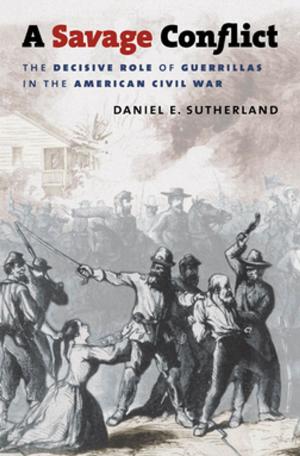From People’s War to People’s Rule
Insurgency, Intervention, and the Lessons of Vietnam
Nonfiction, Social & Cultural Studies, Political Science, Politics, History & Theory| Author: | Timothy J. Lomperis | ISBN: | 9780807863046 |
| Publisher: | The University of North Carolina Press | Publication: | November 9, 2000 |
| Imprint: | The University of North Carolina Press | Language: | English |
| Author: | Timothy J. Lomperis |
| ISBN: | 9780807863046 |
| Publisher: | The University of North Carolina Press |
| Publication: | November 9, 2000 |
| Imprint: | The University of North Carolina Press |
| Language: | English |
Timothy Lomperis persuasively argues the ironic point that the lessons of American involvement in Vietnam are not to be found in any analysis of the war by itself. Rather, he proposes a comparison of the Vietnam experience with seven other cases of Western intervention in communist insurgencies during the Cold War era: China, Indochina, Greece, the Philippines, Malaya, Cambodia, and Laos.
Lomperis maintains that popular insurgencies are manifestations of crises in political legitimacy, which occur as a result of the societal stresses caused by modernization. Therefore, he argues, any intervention in a 'people's war' will succeed or fail depending on how it affects this crisis. The unifying theme in the cases Lomperis discusses is the power of land reform and electoral democracy to cement political legitimacy and therefore deflect revolutionary movements. Applying this theory to the ongoing Sendero Luminoso insurgency in Peru, Lomperis makes a qualified prediction of that conflict's outcome. He concludes that a global trend toward democratization has produced a new era of 'people's rule.'
Timothy Lomperis persuasively argues the ironic point that the lessons of American involvement in Vietnam are not to be found in any analysis of the war by itself. Rather, he proposes a comparison of the Vietnam experience with seven other cases of Western intervention in communist insurgencies during the Cold War era: China, Indochina, Greece, the Philippines, Malaya, Cambodia, and Laos.
Lomperis maintains that popular insurgencies are manifestations of crises in political legitimacy, which occur as a result of the societal stresses caused by modernization. Therefore, he argues, any intervention in a 'people's war' will succeed or fail depending on how it affects this crisis. The unifying theme in the cases Lomperis discusses is the power of land reform and electoral democracy to cement political legitimacy and therefore deflect revolutionary movements. Applying this theory to the ongoing Sendero Luminoso insurgency in Peru, Lomperis makes a qualified prediction of that conflict's outcome. He concludes that a global trend toward democratization has produced a new era of 'people's rule.'















